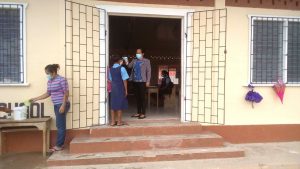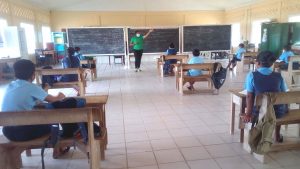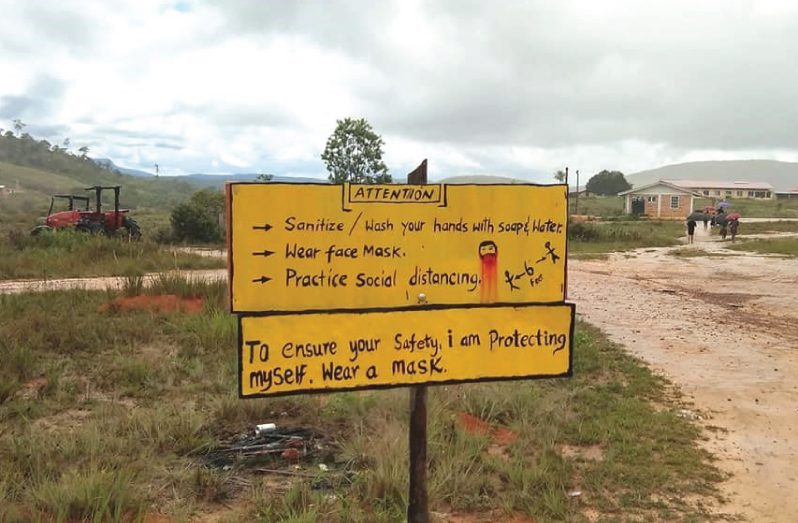– residents no longer doing business with neighbouring Brazil
By Telesha Ramnarine

PERSONS wishing to leave or enter Kato Village in Region Eight (Potaro-Siparuni) are now required to get written permission from the Village Council. This is so even as the village has not yet recorded any cases of the dreadful Coronavirus Disease (COVID-19).
Kato has recently been placed on lockdown, and a COVID-19 taskforce has been set up to further monitor the movements of residents and those from bordering villages. The problem though, is that there are many shortcuts in and out of the village.
Notwithstanding, the village authorities are doing their best to prevent a breakout of the disease in Kato, which is home to some 480 persons. Gates have been put up at the main entry point of the village and anyone leaving or entering first has to obtain permission.
Head Teacher of the Kato Primary School, Karen Abraham, has been working recently in the region to help monitor schools in preparation for the just concluded National Grade Six Assessment (NGSA).
In an interview with the Guyana Chronicle on Saturday, she shared her thoughts and concerns on how life is progressing in the rather picturesque village. She, like many others, is concerned about the activities in the bordering communities.

“The border communities in Brazil have about 600 confirmed cases, so it is out of concern that the Village Council took the initiative to lock down the village,” she expressed, adding, “They’re trying to work hard to prevent the virus from getting there, but what is worrisome is that despite having the gates, people are still moving on foot and bicycles. There are other ways of entering the community as there are a lot of shortcuts around the place. So they have to be very vigilant.”
Abraham recalled that on her recent visit to the village, she was quite impressed from the moment she stepped off of the aircraft to see that every single villager was wearing a face mask.
All engagements with neighbouring Brazil, such as shopping, have been put on hold and villagers are now relying on items being taken into the area by aircraft from Georgetown. “It might be a little more expensive, but not anything major,” she offered.
According to her, 11 pupils from the Kato Primary School were able to write NGSA, thanks to the hard work and dedication of the teachers in the village. The Education Ministry has also been very helpful in supplying materials that were needed, such as a compilation of past exam papers for the students to work with.
The schools also complied with directives to protect against COVID-19. “Everyone wore face masks, and there was a sanitary area for children to wash their hands at school. They didn’t have much, but they improvised. For instance, they had a bucket with water and they used cups to throw water on each child’s hands and ensured they washed properly,” Abrahams reflected.

Meanwhile, apart from keeping a check on all those leaving and entering the village, Abraham had said in a previous interview that the Village Council is also trying to quarantine those going back into the village. “While they have no control over the persons going to work on the ‘hydro’, they asked them to remain on the worksite.”
Closure of schools has also affected the livelihood of some farmers who plant to sell to the school-feeding programme. With school out, the farmers would need to find alternative markets. “This becomes an issue, because everybody in the village plants,” Abraham said.
“If the disease gets there, we are going to see some unpleasant things, because they don’t have the facilities there to deal with it. I’m not sure there’s anything in place to deal with a possible positive case; they’re not prepared to handle an outbreak there,” Abraham said.
Out of concern for the people in Kato, Abraham said she tries her best to keep them abreast of what is happening because many of them do not have access to the internet and international news.



.jpg)









